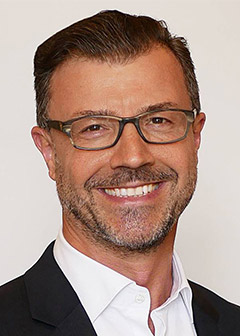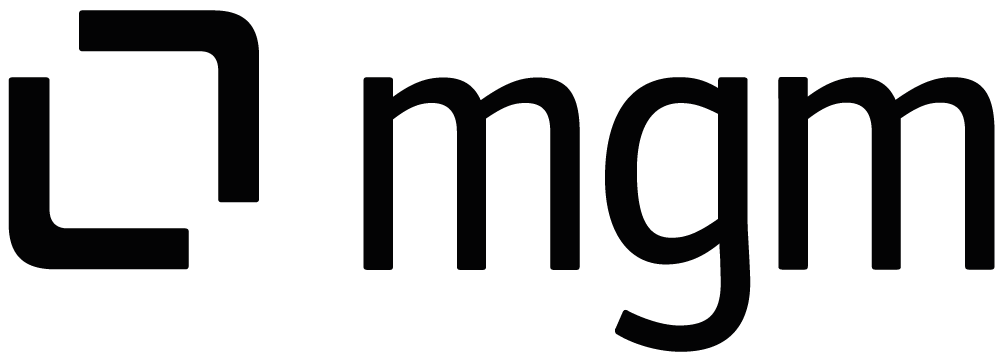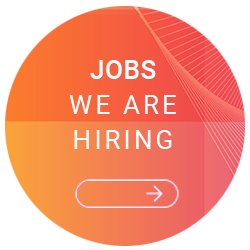
But – what makes digitization so complicated? In the original sense, the term “digitization” refers to the conversion of analog values into digital formats. From this initially inconspicuous technology, which has been in use for many decades, a radical change has developed since the turn of the millennium, a kind of digital revolution that encompasses almost all areas of life, private as well as professional. This upheaval is unstoppable and it is continuing at an ever-increasing pace.
A new digital world with new general framework and new means of freedom is emerging. The environmental factors are changing at an unprecedented speed and decisions have to be made accordingly quickly. A labyrinth is quickly created that is difficult to overlook, with aberrations but also great opportunities. Karel Golta of indeed innovations presented in his lecture a lively and clear classification of the development of digitization.
Digitisation is not an end in itself, customer benefit is the main focus
Companies have to make completely new decisions: Do they want to act or react? Are they pioneers or followers? Do they determine the market or copy other ideas? How profound will the change be? For us as a consulting company, this is an exciting environment. Our task is to support companies in finding the right paths and implementing them. Actually quite simple… but what is the “right”, the promising way?
It’s not sufficient to be just digital.
In her presentation Dr. Ruth Betz made it clear that digitization is not an end in itself. Only because you digitize your company or, for example, build an online marketplace, you are far from successful. Digitization is – which often fades into the background – always only a means to an end, always only a tool. The goal can only be to meet the needs and demand of the customer. What digitization has brought along is the transformation from a supplier market to a buyer market. This can be seen in all sectors, in one sector more, in the other somewhat less, but everywhere clearly.
It’s always and first about the customer and the product he wants, this is where every business model must originate. We have to “think from the customer’s point of view”. Digitization can then be a tool to (better) fulfil these customer needs. At First, the customer determines how the product should look like and what benefits it should bring. It is no longer conceivable for a company to launch a product on the market unless it really satisfies customer needs.
In order to meet these requirements, companies must orient themselves to the entire customer journey. How and where does the customer inform himself about products, how and with whom does he make his purchase decision? Which media does he want to use to communicate with companies? The company’s internal processes has to be designed accordingly. Dr. Florian Heydenreich and Jens Kocab from Linde Material Handling demonstrated clearly and practically that this also applies to capital goods and that the entire sales force is required to adapt and reinvent itself.
Digitization is “People Business”
However, it is not enough to convert the IT infrastructure and processes in established companies to the new conditions of the digital world. At first glance, it is not obvious that digitization has an enormous impact on the world of work. Almost all of the speakers on our theme track pointed out that digitization is above all a people business. There are two main reasons for this:
On the one hand, digitization has brought employees closer together. In the past, people worked together for years in a separate, stable department and usually only had a small number of contacts to the outside world. Today, employees work in teams that are often newly formed, often across national borders. In his lecture, Prof. Weinberg called for the focus to be more on a “WeQ” than on IQ. Not the intelligence of the individual will be important in the future, but the productive and creative networking of many will lead to a faster and better goal. Methods such as design thinking will become more and more established.
Not the intelligence of the individual is important, but the networking of many.
On the other hand, the increasingly rapid pace of technological development places completely new demands on employees. It is no longer sufficient to learn a profession once and for all, which you then practice throughout your life. Lifelong learning and continuous change are the order of the day. We can only achieve this change successfully if everyone works together. Employees have to be picked up individually where they stand and accompanied by consistent change management. In order to be successful in the long term, you need a culture of innovation, free thinking and the joy of further development, but also the courage and acceptance to make mistakes. Better a “fail early” than an “eternal tragedy” without perspective. This creates space for the right, the good ideas and initiatives.
These paradigm shifts are a particular challenge for managers. Tim Döppner from Lidl Digital, among others, pointed this out. They will no longer be leading the same team for years, but rather on a project-related and situational basis. Clear objectives tend to become coaching. Leadership takes place when it is desired by the employee. The main task of managers is to form and develop teams. They always have to find the right balance between closeness and distance in order to be there for the employees on the one hand, but on the other hand to give them space to develop.
In many places, the disciplinary management model is transformed into a mentoring model in which experienced managers accompany a group of employees who are not necessarily subordinate to them. They point out development opportunities and perspectives and are available as contact persons when difficulties arise, but no longer determine the daily workload.
“Solutions” – experiences and solutions
All these paradigm shifts are reason enough for us to seek regular exchange with customers and partners. As in recent years, solutions.hamburg offers an ideal opportunity to take a glance together at the possibilities offered by digitization. This is an ideal opportunity to exchange practical experience, discuss solutions and report on projects. Successes are shared and lessons learned discussed in order to jointly develop new ideas for the future.
To achieve this, we spare no expense and above all no effort. As a Gold Partner, we once again spent a whole day designing the program in one event hall with our own theme track:
“Embracing Digital Transformation”
We don’t just want to react to the digital transformation, we want to welcome it and actively shape it. To this end, we have invited a total of 15 speakers to report on their personal experiences and opinions on the subject of digitization from very different perspectives.
In order not only to listen to lectures, but also to have the opportunity to get in touch with each other intensively, an appropriate supporting program is of course not to be missed. Trade fairs should not only be a must, but also a pleasure. Whether at the Speakers Dinner the evening before or at the informal get-together in the evening after our theme track, not only during the day was there enough time for personal contacts and exchange of opinions.
Of course, all this would not have been possible without our partners from Silpion, who originally initiated solutions.hamburg and set it up anew every year, winning rousing keynote speakers such as Ranga Yogeshwar and Sascha Lobo and creating a sensational and incomparable setting at Kampnagel.
And our theme track wouldn’t have been such a great success if our organizational team of consultants, marketing and administration hadn’t worked so hard for months. They artfully interwoven creativity, organizational talent and communication skills to what made mgm’s entire presence at Solutions so special: professional, likeable and customer-oriented.
I am grateful and a little proud for that. To my colleagues and to our customers. And I am confident that we will continue to learn together and develop in a goal-oriented manner.
Thomas Brugger
Partner und Gesellschafter






